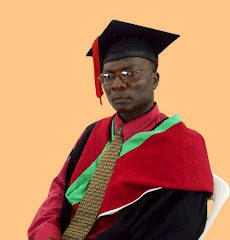
The graphical picture is very disturbing but it’s there for you to understand the turn of events. She was by all means a great beauty. But by the time of her death she didn't look even like her shadow.

This was how she looked like before she became emanciated
I have the details from her for you to read through and know what happened thereafter and actually how she really looked when life was still available{Pretty}. Now start reading the letter she had left
RUINED LIVES
When I joined Moi University in September 2001, I promised myself "that it's in Moi University I got it and its here I will leave". I have indeed lived to keep my promise. I was in Form three when a student on his attachment in our school proposed for a relationship. He had all the qualities a woman would want in a man so I gave in. He told me all a form three girl would want to hear. In my innocence and naivety, I succumbed to his pressure to have sex with him, consequently, I lost my virginity to him. After his placement, he reported to college for his final year and we still had contacts. I visited him on a number of occasions, (I've even lost count the number of times I visited him). He was my first and only love and therefore hanged on every word he told me. My boy friend later graduated and we lost contact until last month (March) when his sister told me about his whereabouts (details of this later). Before registration in the Faculty of Law, in PSSP, I went for medical tests as is the requirement. I then opted for an HIV test, which unfortunately turned out to be +ve. It then downed on me that I had treaded the rest of my life for a university student who had deliberately and intentionally preyed on my innocence. My first impulse was to take away my life, counseling sessions did not mean much to me and I quickly walked out of the session. I however did not confide my status to anyone until today. The following day I went to a different Health facility and the results were still +ve. Therefore there was no doubt that I had been infected by this teacher-student. Since as the sister said, he had passed away after 6 months of being bed-ridden, besides, I had never had any other sexual relationship with anybody – No blood transfusion and the last time I used a syringe was in 1989. Now, since whoever infected me did not mind about my life, I will also infect as many as possible as long as they are university guys oblivious of my status. So guys, anyone of you out there who may have crossed my "path" should count himself unlucky and should quickly place an order for ARTs supply before it's too late! I decided to spread the virus indiscriminately in the Campus, (and have no apologies), because its here I got and I intend to leave it here. I've a well-documented report of all those guys who "crossed my path" since I joined this college. I will be posting their full names and registration numbers on the Students' Notice Board after the end of Semister. II Exams (August). So far, I've had 124 students, yes one hundred and twenty four. Out of these, only 6, yes six used a condom I still reiterate the fact that I owe nobody an apology and am still on a spreading spree till August. Otherwise, I wish you success in your end of First Semester exams as you wait for your slow and sure DEATH.
My dear friends, it seems like the world is coming to an end. We all need to take care; this is not the era where we never used to talk about sex to our young ones- be they children, brothers, sisters, cousins. We need to educate them! I believe this is just but a tip of the iceberg; Its only that she came out openly and said what had happened to her. But, THINK! How many more out there are out in the same mission, other Universities, Colleges, Commercial enterprises, Schools, work places and brothels? We need to be very cautious.


































